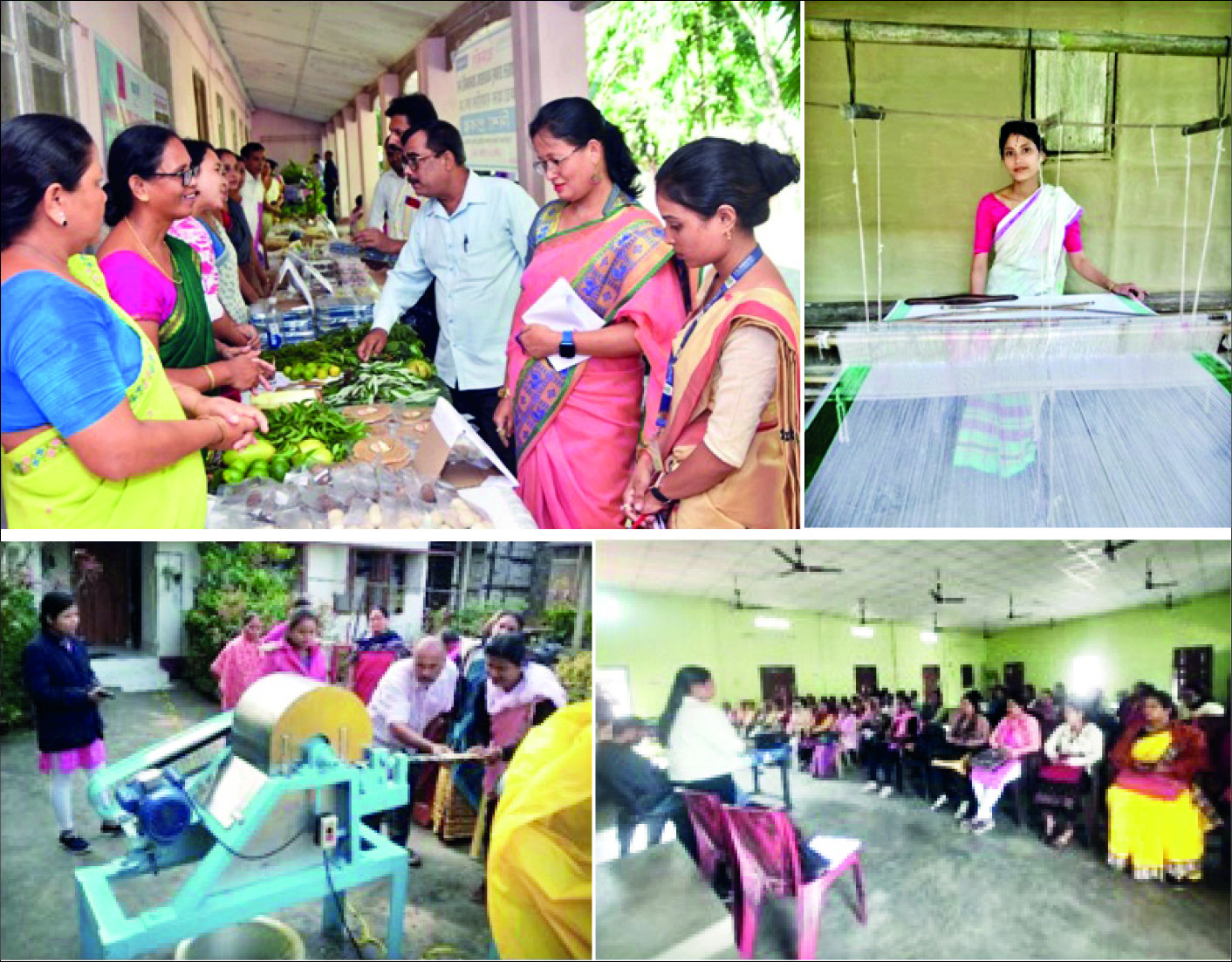Nexus of Good: Stewards of transformation
Through its Project DISHA, Humana People to People India is creating an entrepreneurial ecosystem in the districts of Assam by providing intensive training and business development support to women

Women’s participation in the economy is essential for not only gender equality and sustainable economic development, but also for poverty alleviation. They play a vital role in driving economic growth, fostering innovations and promoting social development. Evidence suggests that businesses with at least one woman founder have more inclusive work culture, employ thrice more women than men and generate 10 per cent more cumulative revenue. Understanding the potential and need of utilising the gender dividend, HPPI has been giving skill and livelihood training to many women entrepreneurs.
Building ecosystem for rural women entrepreneurs
Access to finance is a crucial aspect of ecosystem development for women entrepreneurship. Many rural Indian women lack the collateral or financial literacy required to access traditional forms of financing. By offering financial literacy training and facilitating access to government schemes and grants, women entrepreneurs can overcome these barriers and realise their business aspirations. Capacity building and skill development are also vital components of ecosystem development. Many women entrepreneurs in rural India need more skills and knowledge to run a successful business. Training programmes, workshops and mentorship opportunities can empower women to build the confidence and expertise needed to navigate the challenges of entrepreneurship.
Humana People to People (HPPI) has been at the forefront of getting drop-outs back to school and has achieved substantial success in this regard, going on to win the Nexus of Good Annual Award in 2022. They evolved a model through public-private partnership that is being scaled and replicated in many parts of the country. They are now in the process of assisting other NGOs as well in bringing children back to the school, especially during the post-COVID period. Interestingly, they have been working in other areas as well.
HPPI’s Project DISHA is building a foundation for rural women’s empowerment by providing intensive entrepreneurship development training and business development support to them. This is to enhance their understanding of entrepreneurship skills, livelihood opportunities, setting up of new businesses and their growth. The DISHA Project in Jorhat, Bojali and Sonitpur districts of Assam is being executed since October 2022. Since its inception, the project has organised 373 Villages Introductory Events and 10,983 women participated in them. These introductory events provide knowledge to the community members about the project and brief them on how they can maximise the benefits of the project. These events also help in identification of the target groups.
Till July, 2024, 10,196 women had completed their Entrepreneurship Development Training (EDT) in Assam through the project. Under this training the women were assisted in enhancing their entrepreneurial capacity, and strategically planning the expansion of their existing businesses or start-up ideas while also taking into consideration the local enterprise eco-system to ensure that they minimise the systemic risks. Other key areas covered during the training comprised Learning Entrepreneurship and start-up through Awareness and Practices (LEAP), enhancing communication skills, budgeting and financial management, loan and financial literacy, business planning, problem-solving, SWOT analysis among others.
Networking and mentorship are equally essential in ecosystem development for women entrepreneurship. By connecting women entrepreneurs with experienced mentors, peers and potential collaborators, women can access invaluable support, guidance, and opportunities for growth. One of the mandates of the project is making linkages of women to Rural Self Employment Training Institutes (RSETI). It is assisting the women by providing vocational skill training for bamboo crafts, incense stick making, banana fibre crafts and soap-making. These training programmes, facilitated by various collaborators, are aimed to empower women through skill development for potential careers or entrepreneurship opportunities.
To foster networking opportunities, the project organises skill fairs regularly to provide a platform for entrepreneurs to showcase their products, while also providing insights into market strategies and techniques for market linkages.
In addition to the challenges of accessing resources and building supportive ecosystems, rural women entrepreneurs often face significant cultural and social barriers that hinder their ability to pursue entrepreneurship. Traditional gender roles, cultural stigmas surrounding women working outside the home, and lack of support from family members or community leaders can all pose formidable obstacles. Addressing these barriers requires targeted interventions that are culturally sensitive and community-driven. Initiatives such as community outreach programmes, educational campaigns to challenge gender stereotypes and efforts to promote gender equality and women’s rights at the grassroots level are essential. By acknowledging and addressing these cultural and social barriers, we can create a more inclusive and enabling environment for rural women entrepreneurship, allowing them to fully realise their potential and contribute meaningfully to their communities’ economic and social development.
The DISHA Project is creating an entrepreneurial ecosystem in the districts of Assam with the support of YES Foundation where more than 2,018 women have already started or improved their businesses and are supporting other women to start their entrepreneurial journey since October 2022. Humana People to People India (HPPI) is also implementing similar women's livelihood projects in three different states—Haryana, Rajasthan and Uttar Pradesh, and more than 45,000 women have benefitted in the last 3 years.
Humana People to People have yet again demonstrated that critical issues relating to women empowerment and gainful employment can be addressed through public-private partnership. The model that they have put in place is replicable and scalable and has the potential to transform rural landscapes in remote parts of the country. What they have achieved is truly remarkable and in the true spirit of Nexus of Good.
Views expressed are personal



